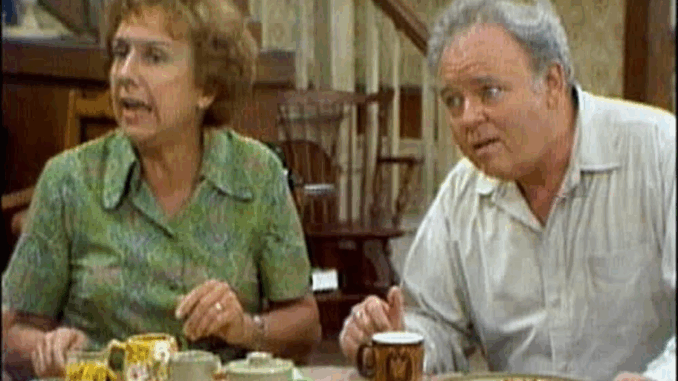
In the long and celebrated run of All in the Family, few characters have been as quietly influential as Lionel Jefferson. As the smart, respectful, and quietly sarcastic neighbor from the Black family next door, Lionel often served as a counterpoint to Archie Bunker’s ignorant views. But in the episode “Lionel, the Live-In”, Lionel steps beyond the role of neighborhood visitor and becomes an in-house reality check for the Bunkers — and for America.
When the Jeffersons Meet the Bunkers—Up Close
In “Lionel, the Live-In,” Lionel temporarily moves into the Bunker household, setting the stage for a deeper cultural clash than usual. While he and the Bunkers have long had an uneasy but oddly functional relationship, living under the same roof magnifies tensions — particularly for Archie.
For Archie Bunker, played by Carroll O’Connor, this arrangement challenges not just his space, but his worldview. Lionel’s presence exposes Archie’s prejudices in more intimate and uncomfortable ways than ever before — making the humor sharper, and the lessons harder to ignore.
Archie’s Discomfort Is America’s Mirror
The brilliance of this episode lies in how it uses proximity to highlight bias. Archie’s thinly veiled discomfort with Lionel as a live-in guest is played for laughs, but it’s also deeply revealing. His offhand remarks and passive-aggressive behavior serve as a mirror to the latent racism still embedded in everyday American life.
Rather than lecturing viewers, the writers let Lionel’s calm, confident demeanor and biting wit reveal the absurdity of Archie’s attitudes. It’s social commentary disguised as sitcom genius.
Lionel: More Than a Supporting Character
In this episode, Lionel steps into the spotlight. Played by Mike Evans with intelligence and charm, Lionel proves himself not just as a foil to Archie, but as a layered character in his own right — confident, independent, and deeply aware of the subtle racism he navigates daily.
By showing Lionel’s perspective, “Lionel, the Live-In” allows Black voices to shape the narrative, rather than simply respond to it — a rare move in early 1970s network television.
Edith and Gloria: Voices of Compassion
As always, Edith (Jean Stapleton) brings warmth and open-heartedness to the situation. While she doesn’t always understand the complexities of race, her instincts are kind and inclusive. Gloria (Sally Struthers), ever the liberal counterbalance to Archie, continues to challenge her father’s views — though even she isn’t immune to discomfort when faced with the realities of integration in a personal space.
A Legacy of Courageous Storytelling
“Lionel, the Live-In” is more than a situational comedy episode — it’s a powerful, nuanced look at how race, class, and personal space intersect. It dares to ask: What happens when our ideals are tested not in theory, but in our living rooms?
Norman Lear, the show’s creator, once again proves that sitcoms can be instruments of social change — challenging audiences to laugh, think, and grow.